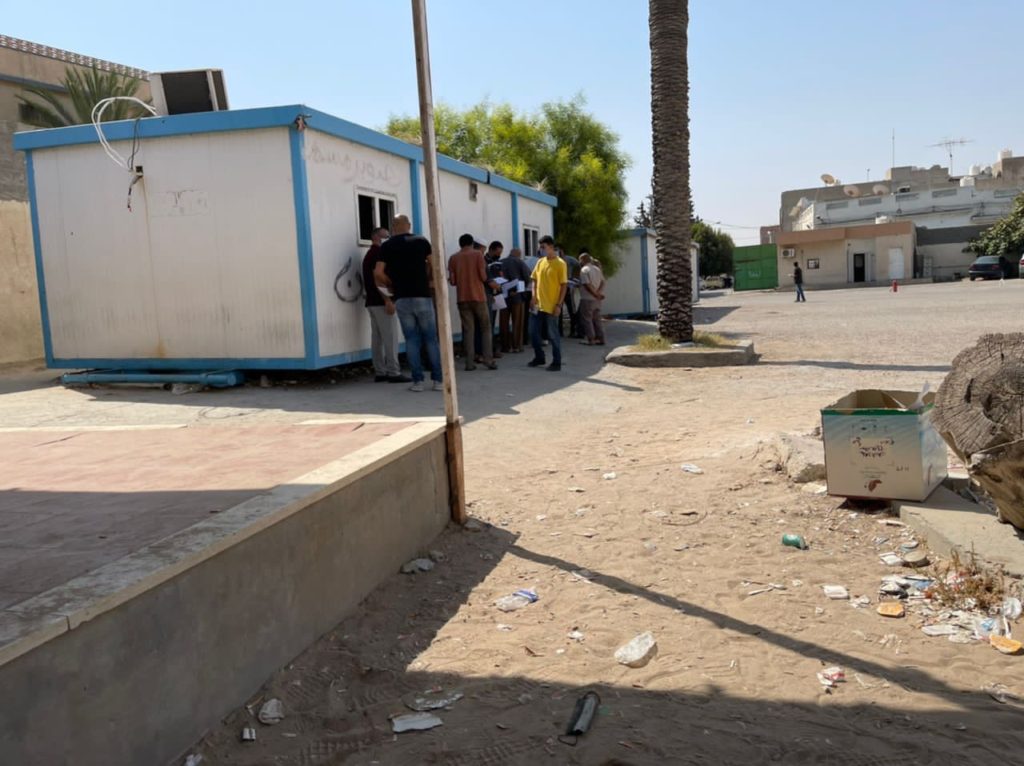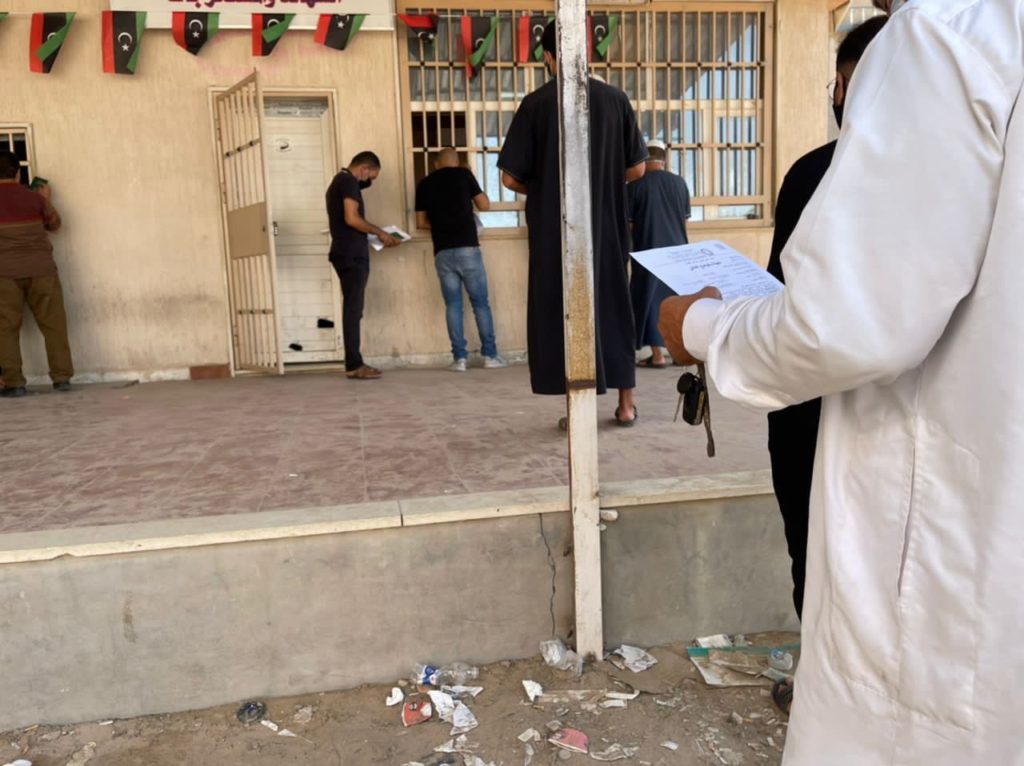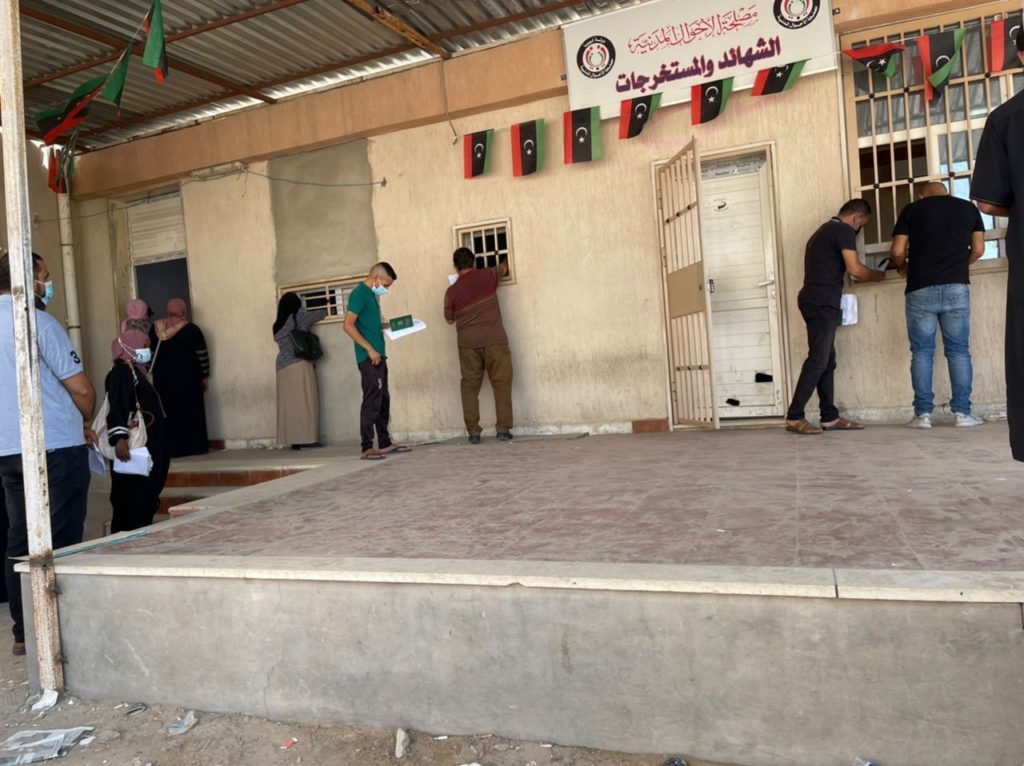The author’s name has been withdrawn for his security concerns.
Tripoli — I still remember the moment when the Head of the UN-installed government, Fayez Al-Sarraj, took over in 2015. I had a feeling that the crisis in Libya would be over, but over time the situation contin-ued to worsen, and I realised I was completely wrong.
At a resort in Morocco, rival parties and the United Nations celebrated the selection of Al-Sarraj as Prime Minister. He gave a big smile and held hands with others’ up in the air, as a show of unity.
The former UN Special Envoy to Libya, Ghassan Salame said in an in-terview with a local TV channel that the PM had cried a couple of times in his office, saying that he was in a trouble, and that the Al-Siqqa road building was not easy to run.
Al-Sarraj’s administration was aimed at unifying the country’s institutions and providing public services, but it only created more suffering and di-visions. We were plunged into daily power-cuts that continue throughout the year, the Libyan dinar was lost its value, at one point reaching nine dinars against a dollar, lack of cash in banks, a severe shortage of fuel, insecurity, and difficult living conditions.
The PM often disavowed the poor performance of his administration and placed the blame on what he and others called, “the legacy of the for-mer regime.” To add fuel to fire, Al-Sarraj and his militias brought thou-sands of mercenaries from Syria, with the help of Turkey, which now occupies military bases in the west of the country. All on the pretext that he was fighting Khalifa Haftar’s Libyan National Army (LNA).
As LNA forces advanced towards Tripoli in 2019, a picture of “Serjio” (Al-Sarraj’s nickname), in a luxury chocolate shop in central London went viral on Libyan social media, creating outrage among the popula-tion.
I asked myself, “how can someone in such a senior position go shop-ping while his forces were at the front line. Either he is being forced to be in his position, or he does not believe in what he is doing.”
During his mandate, long queues were the norm for everyday staples such as bread, gasoline, cash, water, and even subsidised milk.
I am from Benghazi, the second largest city in Libya, but I live and work in the capital, Tripoli. I decided a week ago to open a bank account in a Tripoli-based private commercial bank, to receive a credit card for for-eign currency use, as I plan to start an online shopping business.
Unfortunately, I could not believe what I went through for almost four days just to open a bank account, something that can be done in less than an hour abroad.
I visited the bank and enquired about the necessary documents I need-ed to submit. Surprisingly, an employee gave me a list of what I should provide them.
Among those requested documents was ‘a dated copy of the National ID number [ NIDN ]’, which must be printed out this year. I have no idea why, as this is a fixed number within the country’s national data system.

I left the bank and I started this miserable journey, which left me feeling lost and helpless in my own country. This is how it works, every step you take in Libya, you need to prepare a folder full of papers. I’m sure that Libya ranks first globally in paper consumption.
The NIDN can be only granted by the Civil Status Authority, and is linked to Ministry of Interior. You have to provide “a registration number” from the Qaddafi-era Family Booklet. In Libya,
each procedure is related to another procedure. An endless bureaucrat-ic process of state institutions.

It is heartbreaking that a country like Libya, a major oil producer can still be unable to have state institutions with fully equipped and respected headquarters, that are able to provide basic services.
The authority has dozens of branches all over Libya, and a Facebook page followed by more than 100,000 people, but there is no official website.
The first branch I visited was located inside an abandoned factory be-hind the headquarters of the Interior Ministry on Airport Road. It is a small dilapidated building that can hardly be seen from the dust blowing around, the road is unpaved, its doors and windows are of solid iron, as if it were a prison. The remnants of the former factory are still visible.

I went towards the main door and found people asking someone who was standing at the front of the door, smoking and giving instructions on where to go, or what services are provided.
When it was my turn, the man said, “you have to go behind the building and you will find a window where others waiting in a queue.”
I followed his instructions and the scene was shocking. I saw upwards of 20 people in a queue trying to reach a high window. You had to stand on two pieces of cement-blocks to be able to communicate with the em-ployee inside.
It was hot, and people tried to take refuge by using their documents to shade themselves from the scorching sun. The only sound that could be heard was an employee speaking loudly on his phone, and sometimes laughing with his colleagues.
The queue was moving slowly, and if you were lucky enough to get your NIDN, you had to queue at the next window to pay one dinar to ratify your NIDN with a stamp. Suddenly, the queue stopped moving and the employee shouted, “the system has stopped.”
Now I had to decide wether to wait for the system to resume, which is frustrating and can last for hours, or leave empty-handed. I left as it was too hot, and the employee was not unaware if the issue could be han-dled quickly.
I went back again the next day and found more people waiting. I waited for almost an hour, where once again, the system stopped, then the power went off. I felt hopeless.
I was busy with other work so I visited a different branch the other day, in the Ras Hassan area, where I found a similar scene.
Again, I had to line up in the unforgivable sun to reach yet another awk-wardly-placed small window. While I was waiting, I had a little chat with someone waiting next to me who said, “Libya is a disaster, we have to line up for everything.”
I asked him, “why are the buildings in such terrible condition? Why are there no waiting rooms where you get a number, and wait for your turn?” He laughed and said, “You’re in Libya, it’s corruption. Everything is corrupt in this country.”
I felt joyful when my turn came, but that did not last, as I was told by the employee, “sorry, you’re from Benghazi and can only get it from your city. Next ”
I felt frustrated. I gathered my strength and asked him, “Isn’t the new government supposed to have unified state institutions? I assume that the system is unified, and any citizen can obtain services from the au-thority’s branches in any city?” I must admit that I often forget that I am in a collapsed country, and demand things that do not exist.
The employee replied quickly,“please don’t disrupt me, these are the procedures.”
When I was leaving the branch, a man said to me “it’s ok. Everything will be ok. Go and ask the employee in that office, I think people from other cities have a special branch for these documents.”
I queued again in front of an iron-clad miserable looking window, and I could not speak because of the shock of what I was seeing . A bearded man wearing a long Jilabiya sitting in the dark, with the ceiling half falling behind him. A number of printing machines and computers were fully covered with dust, proving that they have not been used for some time. I quickly explained my issue, and was told to go to the Hai Al-Andalus branch, where non-Tripoli citizens can get their documents.
Mobile phones, old coffee cups, overflowing ashtrays, and scattered papers are the general sight of an employees’ desk in a Libyan institu-tion.
Reminder; Don’t criticise what they are doing because their revenge will be quick, and you will be left without anything. A teller in a commercial bank had burned my check with his cigarette during working hours, and instead of apologising, he asked me to come back the next day with a new check, and I should not question him about the incident.
A one hour drive in extreme traffic later, I arrived at the third branch. I entered the first room where the employees were busy with their phones, some were smoking, and others chatting. When I asked one of them where I needed to go, he said “you need to go around and will find…” and I quickly said “a window and people queuing in front of it!”. He laughed and said “you already know .”
That window employee I reached said, “sorry but your issue can be only solved out in a small office, not far from here.” I decided to give up be-cause I felt like I was being kicked around like a ball between their win-dows and branches for nothing.
I got into my car and cried, I could not stop. I asked myself, “why is this happening to Libyans? Why is an OPEC member with billions of dollars in income unable to provide services in a decent way? Why do we hear about the massive oil revenues, but our country is destroyed.”
Nobody has an answer to my questions, but I am sure there are an-swers and solutions.
All the governments that came to power after the killing of Muammar Gaddafi in 2011 spent huge amounts of money every year, and have achieved nothing. The country is a disaster, with no water, no electricity, high inflation, no security, and militias roaming everywhere.
I do not only blame the Libyans, but also the international community because they intervened a decade ago claiming that they toppled Gad-dafi to help us to live better lives. Now, they just release statements to express their concerns.
My phone rang and it was a friend, I told him what had happened and to my surprise, he said he could help me through his friend who works in another NIDC branch. Within an hour I had two copies of my national ID.
Everything in Libya is based on your wasta (connections), even though it’s your right, which is an absolute disgrace.
Even the simplest right, such as obtaining a national ID number is not possible to get due to the collapse of state institutions, that apparently do not want to change.
I do not know if the Civil Status Authority manager, Mohamed Hassan Bettamer, is aware of what is happening in the branches of the authori-ty. He needs to visit the authority offices to see with his own eyes what is going on. He has to see the suffering of the citizen firsthand. He has the funds from the government, and he should improve services in these despicable branches.
This is a small example, and a true story of what I lived through for three days. No doubt, there are thousands in the same situation, suffer-ing in every city, and in every state institution in Libya.
But the key questions now are, will the crisis come to an end? Will there be anyone able to close those miserable windows that the citizens have to go through everyday? Will someone be able to give some to hope Libyans one day?
